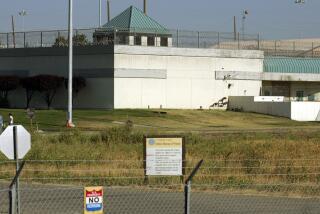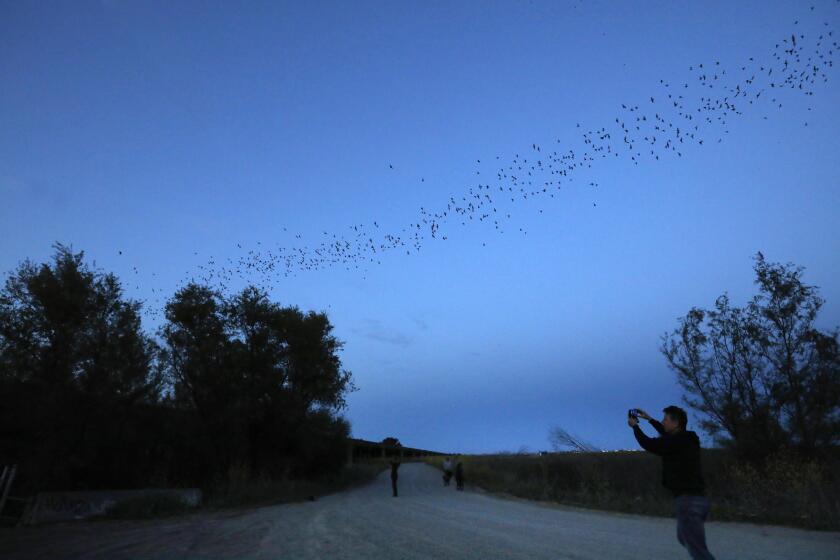10 hospitalized prisoners to get prompt hearings under medical parole law, receiver says
Ten of California’s sickest and most costly inmates — some are in comas, some are paralyzed — will be promptly scheduled for parole hearings, corrections authorities announced Wednesday.
An article in Wednesday’s Los Angeles Times detailed how, despite being chained to bed frames, such inmates are guarded around the clock by multiple corrections officers at an annual cost to taxpayers of roughly $800,000 per inmate.
“You look at these inmates and say, ‘This person is not going anywhere,’” said J. Clark Kelso, the receiver appointed by a federal court to oversee California’s troubled prison health services.
Kelso said he met with Corrections Department Secretary Matthew Cate on Wednesday morning and the two agreed to schedule parole hearings for the 10, who are no longer deemed a threat to public safety.
Former Gov. Arnold Schwarzenegger signed a medical parole law in September to spare taxpayers the expense of guarding such inmates. But as of last week, corrections officials had not scheduled a single parole hearing. They said they were still working on regulations to carry out the law.
The receiver’s office and state prison officials have been at odds about how quickly to nudge these ailing inmates toward parole. The receiver has argued that paroling them right away would save money. Prison officials insisted they needed time to formulate rules and make sure the law is applied consistently.
Kelso said the department would no longer wait for new regulations to be written.
All of the 10 inmates selected by Kelso are being treated in hospitals outside of prison, where their care costs taxpayers more than $2 million a year on average. About 40% of that goes to salaries, benefits and overtime for guards, many of whom consider the assignment a plum job.
One of the 10 has been in a Central Valley hospital and under 24-hour guard for more than seven years, according to the receiver’s office. Five are attached to ventilators. All are immobile, according to the receiver’s medical evaluations.
Even after the receiver’s announcement Wednesday, officials remained divided over the next step.
Corrections officials now say they need time to do their own medical evaluations. They also must find appropriate beds for the inmates in outside hospitals, department spokesman Oscar Hidalgo said Wednesday.
But the receiver’s spokeswoman, Nancy Kincaid, disputed this. She said the inmates in question have already been evaluated and are already in the hospitals where they would likely remain following parole.
Neither office could say Wednesday exactly when the first hearing will occur.
State Sen. Mark Leno (D-San Francisco) sponsored last year’s medical parole bill and has called the delays “maddening.” On Wednesday, he said 10 inmates “is a decent start but hardly sufficient.”
The Times story described 57-year old inmate Edward Ortiz, who is semi-paralyzed by a degenerative nerve disease. He’s attached to a ventilator at one end of his hospital bed and chained by his ankles at the other.
Nevertheless, a guard is stationed at his bedside 24 hours a day and another is posted at the door. A sergeant is also on the scene around the clock to supervise.
Ortiz, a convicted child molester, is among the 10 whose cases will be heard first by the parole board, Kincaid said.
More to Read
Sign up for Essential California
The most important California stories and recommendations in your inbox every morning.
You may occasionally receive promotional content from the Los Angeles Times.











